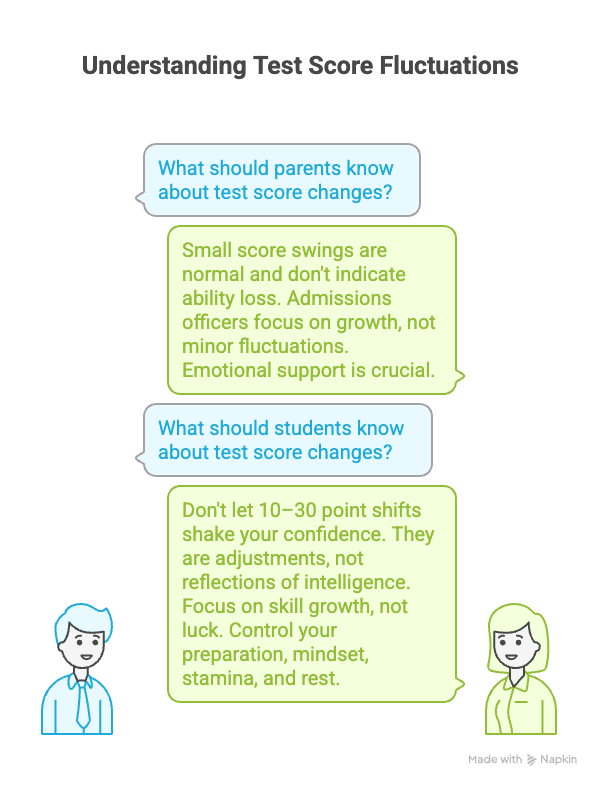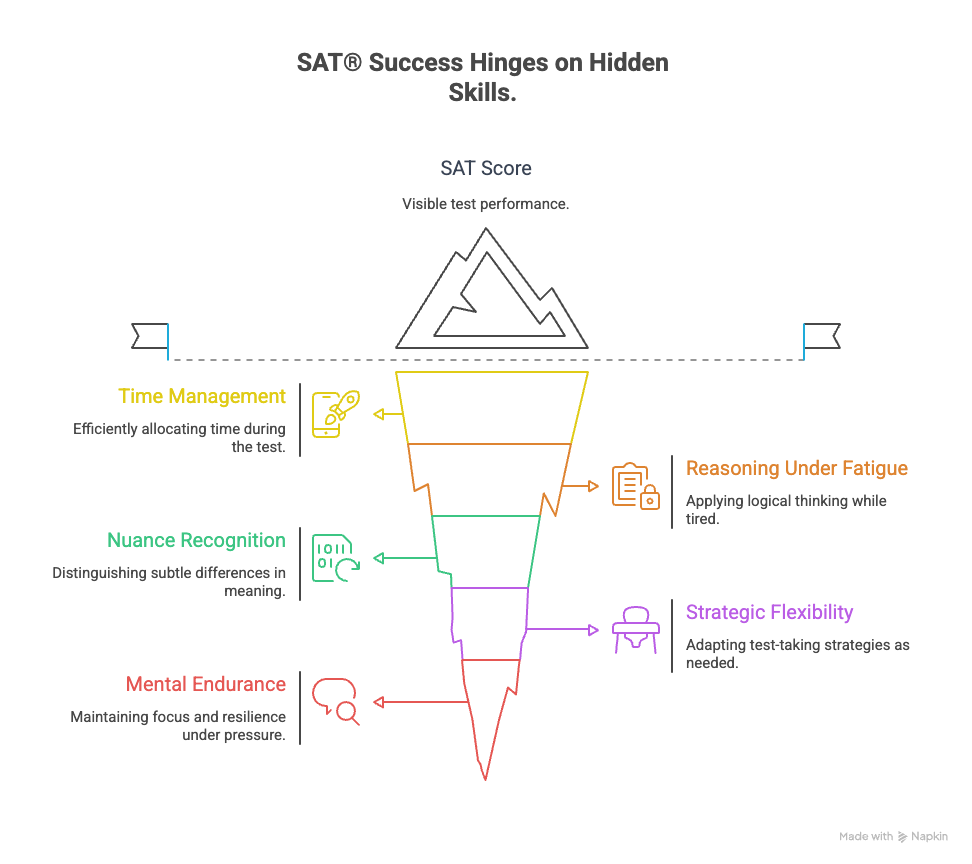Picture this: A world spinning faster than our brains can process. Algorithms drive decisions. Robots replace routines. Rockets leave Earth while wildfires threaten it. Quantum computers solve in seconds what once took years. Satellites track every move. Biotech startups redesign the code of life. And everywhere, screens scream for attention.
In this rapidly evolving world, remote teams build empires without meeting. AI drafts code, arguments, and even novels before breakfast. Virtual assistants know our moods better than we do. News is being generated by bots and personalized to reinforce existing biases.
College essays written by AI, then graded by another. Digital twins training surgeons in the metaverse. Micro-credentials outpacing traditional diplomas. And our students won't just compete with each other; they'll compete with machines that never sleep, never forget, and never burn out. The lines between real and simulated will blur even further. Attention will become a precious currency. And clarity, a true superpower.
And amid it all, a teenager stares at their algebra homework, wondering if any of it will truly matter. This isn't a future that's coming. It's already here. Our students scroll through curated lives on social media, unsure what's real. They swim in information but thirst for wisdom. Misinformation spreads faster than facts. Attention spans splinter. Anxiety rises. Truth blurs.
Yet, much of what we teach remains anchored in educational models from another century. However, not everything old is obsolete.
We carry with us the hard-won wisdom of millennia: storytelling, inquiry, logic, ethics, and the invaluable art of reflection. The task now isn't to discard this rich legacy of learning. Instead, it's to thoughtfully complement it with what this generation truly needs to thrive. Because the future won’t be impressed by a perfect GPA or a single test score. It will reward those who can adapt, connect, discern, and learn effectively when there is no pre-written playbook.
This profound shift directly impacts how we approach all aspects of a student's development.
What the Future Actually Wants Beyond Academic Scores
The future isn't asking for perfect test scores alone. It isn't asking for pedigree. It isn't asking for just another certificate.
The future wants humans who possess the profound capabilities to:
- Bounce back from failure with perspective: This is about mental resilience, understanding that setbacks in academics (like a challenging test) or life are learning opportunities, not end points.
- Wonder out loud without fear of being wrong: Cultivating genuine curiosity and a willingness to explore, even when the answers aren't immediately clear, which is vital for complex problem-solving.
- Focus when the dopamine runs out: Developing sustained attention and the ability to engage in deep work, even amid constant digital distractions. This impacts learning retention and overall performance.
- Work together across borders, belief systems, and bandwidths: Fostering collaboration, empathy, and effective communication, essential for global citizenship.
- Know themselves deeply enough to grow deliberately: Developing robust self-awareness, metacognition, and the capacity for continuous, intentional self-improvement throughout their lives.
These aren't just isolated skills. They are deeply ingrained dispositions that directly influence a student's ability to maximize their learning, build lasting mental resilience, and effectively navigate life's complexities. As the world continues to accelerate and transform, they matter more now than ever.
Why a Traditional Education Can Fall Short in This New World
For too long, education has often focused almost exclusively on content mastery and test-taking tactics. While these are certainly important, they can inadvertently neglect the bigger picture of what truly prepares a student for a rapidly changing world. The future demands more than just rote memorization or the ability to solve problems already seen. It requires a new kind of learner.
As parents and educators, we must recognize that drilling for a high score in isolation falls short. Students need to develop a robust mental resilience that allows them to navigate uncertainty, a deep-seated curiosity that fuels lifelong learning, and the confidence to take on challenges without a pre-set solution. These are the strategies to help students truly thrive in life.
Let's consider how a student relying solely on traditional methods might struggle:
- Vulnerability to Distraction and Cognitive Stagnation: If their study habits rely on brute-force memorization with little attention to focus training, they'll be easily fragmented by digital distractions. This fractured attention impacts their ability to concentrate during complex tasks. Furthermore, research shows that over-reliance on automation and the neglect of creative activities can actually hamper cognitive growth (MIT Study). A student who avoids creative problem-solving risks limiting their cognitive agility, a vital skill for truly novel challenges.
- Identity Crisis in a Digital World: Students might start confusing their self-worth with their curated social media presence, believing that likes, followers, and superficial online achievements are the true measure of their value. This focus on external validation can deeply undermine their intrinsic motivation and create a fragile sense of self when faced with setbacks, impacting their mental resilience.
- Overwhelmed by Ambiguity: A student accustomed to clear instructions and single right answers might struggle immensely with real-world problems that have no single solution. Their lack of comfort with ambiguity can lead to paralysis when faced with complex decisions.
This means shifting our focus from merely what students learn to how they learn and who they become in the process.
How Parents and Educators Can Cultivate These Future-Ready Skills
As parents and educators, we have a vital role in preparing students for this evolving landscape. Here’s how you can help students develop the mental resilience, adaptability, and critical thinking skills they'll need for life:
1. Model and Encourage a Growth Mindset
- For Parents: When your child faces a challenge, whether it’s a tough academic assignment or a personal setback, emphasize effort and learning from mistakes rather than innate talent or fixed outcomes. Say things like, "That problem was really tough, but I saw you stick with it. What did you learn?" or "It's okay to struggle; that's how your brain grows stronger."
- For Educators: Design learning experiences that reward process and effort, not just correct answers. Provide specific, actionable feedback that highlights growth potential. Celebrate perseverance and the willingness to take on challenging tasks, even if the initial attempt isn't perfect.
2. Prioritize Intentional Practice Over Endless Hours
- For Parents: Help your child create study plans that account for energy levels and incorporate strategic breaks. Encourage "deep work" sessions for focused learning, followed by real recovery time away from screens. Discuss when they are most alert for complex tasks.
- For Educators: Teach students about concepts like attention residue and energy management. Encourage them to experiment with different study approaches, like the Pomodoro technique (25 min focus, 5 min break) or interleaving different subjects, to find what works best for their unique rhythm.
3. Foster Curiosity Through Open-Ended Exploration
- For Parents: Encourage "why" and "how" questions, even if you don't know the answer. Explore topics that spark genuine interest. Encourage creative pursuits, hands-on problem-solving, and activities that require original thought, fostering deeper cognitive engagement.
- For Educators: Design learning activities that require students to investigate, question assumptions, and connect concepts in novel ways. Create a classroom environment where it's safe to be wrong, to experiment, and to follow tangents that deepen understanding. Emphasize that curiosity is a powerful driver of lifelong learning.
4. Build Resilience Through "Productive Failure"
- For Parents: Allow your child to experience struggle and failure in a supportive environment. Instead of immediately fixing problems, guide them to reflect on what went wrong and what strategies they could try next. Help them see a lower grade or a mistake as data, not a verdict on their intelligence, boosting their mental resilience.
- For Educators: Integrate "low-stakes" practice and opportunities for iteration. Provide ample chances to apply new strategies and make mistakes without severe penalties. Teach explicit strategies for coping with anxiety and bouncing back from perceived failures, building crucial mental resilience.
5. Cultivate Self-Awareness and Authentic Identity
- For Parents: Encourage self-reflection. Ask your child how they felt during a study session, not just what they did. Help them identify their personal strengths and challenges in areas like procrastination, focus, or stress management. Crucially, discuss the difference between their online persona and their authentic self, emphasizing inner values, integrity, and personal growth over external validation from social media.
- For Educators: Introduce metacognitive strategies, teaching students how to learn. Help them track their own progress, understand their personal learning preferences, and identify when they are most productive. Tools like learning journals or self-assessment rubrics can be invaluable. Facilitate discussions about digital citizenship and media literacy, helping students discern truth, understand algorithmic bias, and build a strong, intrinsic sense of self-worth.
6. Support Holistic Well-being for Optimal Learning
For students to truly thrive and build mental resilience, their overall well-being is foundational. This goes beyond academic strategies and touches on daily habits.
- For Parents: Encourage practices like meditation or mindfulness to help your child manage stress and improve focus. Ensure they have access to healthy nutrition that fuels their brain and body. Promote regular exercise as a critical outlet for stress and a boost for cognitive function. Also, guide them toward healthy interactions with the outside world, balancing screen time with in-person connections, outdoor activities, and community engagement. These elements are as vital as any academic curriculum for mental resilience and overall development.
- For Educators: Incorporate short mindfulness breaks in class. Discuss the importance of sleep, nutrition, and physical activity with your students. Create opportunities for positive social interaction and collaboration that build a supportive community. Recognize that a student's emotional and physical state directly impacts their capacity for learning.






